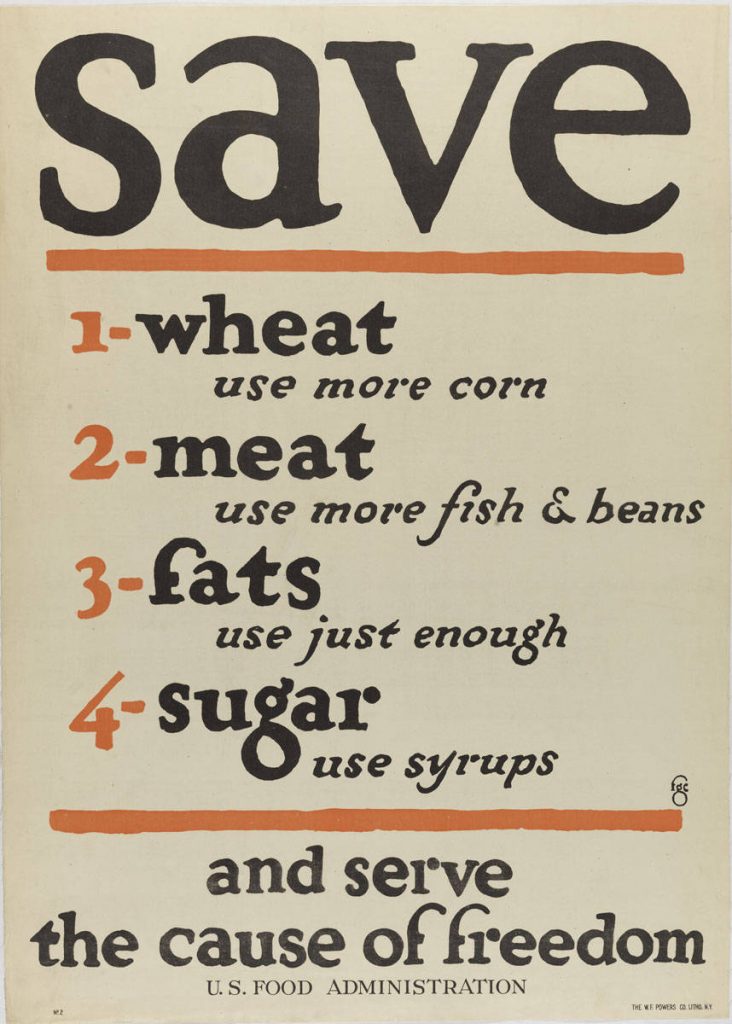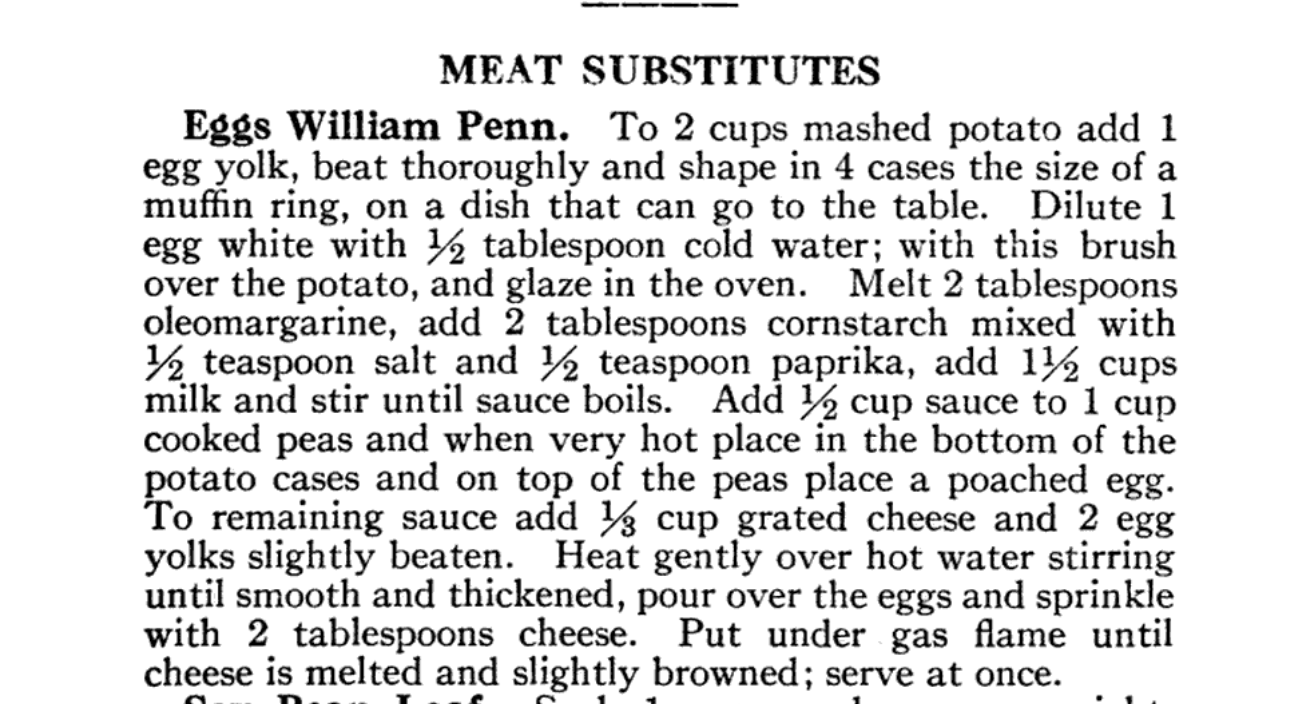Everybody's Got to Eat! Cooking Like It's 1918 (#explore1918)
Cynthia Heider | 18 February, 2018
So far in the #explore1918 series, I've written about how World War I impacted free speech, Eastern European immigrants' cultural pride, literature, and the legality of condoms. Next I'm going to turn to a subject that everyone can relate to: Food!
What was it like to cook and eat in 1918?

Aside from technological differences- iceboxes were still widely used rather than electric refrigerators, for instance- cooking in a kitchen of 1918 would not have been shockingly different than the methods used to cook in a 2018 kitchen. On the other hand, provisioning for troops abroad made some ingredients expensive and hard to come by. Propaganda tools like the poster seen to the right encouraged some eating habits- fewer fats, wheats, processed sugars, and meats- that sound familiar in our health-conscious day-and-age. It was in this context that nutritionist (and then-consultant at the U.S. Food Administration) Alice Bradley's cookbook Wheatless and Meatless Menus and Recipes was published in 1918.
A Cookbook for Wartime... or Anytime!
I was curious to try this "Eggs William Penn" recipe as a nod to the Philly History Project. So, reader, I made it.

- Before

- After

The Results
First of all, I want to say that I'm pretty sure that 'Eggs Willliam Penn' is a made-up thing, probably inspired by 'Eggs Benedict.' It's basically a layer of mashed potatoes, a cream sauce, peas, poached eggs, and cheese. There is no flour or meat in this dish, hence the "wheatless and meatless" part. Instead of containing flour or lots of butter, the sauce is made by thickening milk with cornstarch, which I've never encountered before. The recipe also assumes prior cooking knowledge that I did not have; for example, I had to look up how to poach an egg. But on the whole, it was relatively easy to make as well as filling, but also rather bland.
What 1918 recipes would you make? Red Cross Salad? Mock Lobster Newburg?
This article originally appeared in a slightly different format on the Steemit platform and carried this tagline: "100% of the SBD rewards from this #explore1918 post will support the Philadelphia History Initiative @phillyhistory. This crypto-experiment conducted by graduate courses at Temple University's Center for Public History and MLA Program is exploring history and empowering education. To learn more click here." It is no longer accruing Steem cryptocurrency.